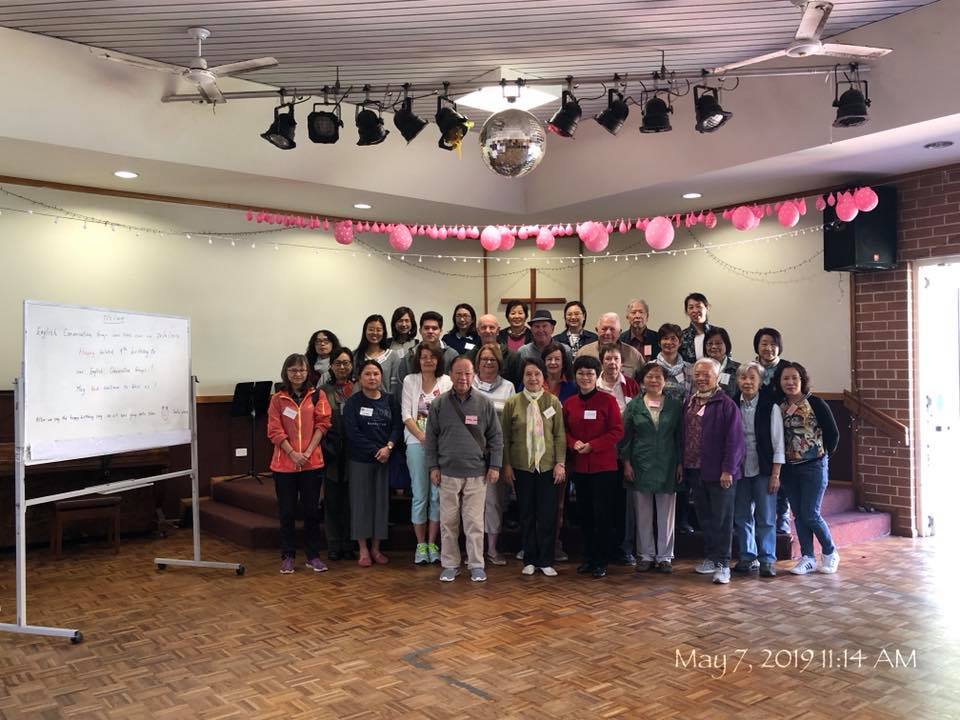The project that I undertook with Hurstville City Uniting Church’s English Conversation Groups (ECGs) is the creation of their 10th Anniversary Booklet. We asked both current and former students and helpers to share their favourite memories at the ECGs. We also sorted and included photos from the past ten years to be added into the booklet. The purpose of such a project is to reflect on how much the organisation has grown over the past ten years and to celebrate a big milestone for the organisation. The testimonies shared by those involved have also revealed the positive impact that the ECGs have had on the students’ and helpers’ lives and reinforces the value of volunteering and cross-cultural exchange. Whether the student or helper has been a long-standing member of the group or was simply involved with the ECGs for a few months, these testimonies reveal common experiences of self-growth and a sense of community within the organisation.
The main components of the booklet include a nine year photo timeline, a foreword written by the organisation’s founder and coordinator, student testimonies, helper testimonies, and a few pages of photo collages. The purpose of the nine year photo timeline is to demonstrate how the group has changed over the years but to also recognise the long-standing members of the group. Unfortunately, group photos were not taken each year so from 2011 to 2013, substitute photos have been used that do not include all members of the ECGs that year. I also asked Ivy, the founder and coordinator of the group, to write a foreword reflecting on the ten years of the ECGs since its inception in 2010. Following the foreword is the main component of the booklet, which are the student and helper testimonies. The testimonies do not encompass everyone who has been involved in the group but former and current students and helpers who were willing to share their experiences and responded to our request for written submissions. We also went through old photos to find pictures of these helpers and students to include in the booklet alongside their testimony. The final pages include photo collages with group photos and photos of members of the ECGs who weren’t depicted in the previous pages.
The reason why I decided to become involved in this project was because I was a volunteer of the ECGs myself. I was able to witness the value of the organisation first hand and felt a personal connection with the organisation through my own involvement. I felt that many of the students and helpers had stories to share and different reasons for coming to the ECGs. While this group only formed a small part of their routine on a Tuesday morning, it had made a significant impact on their lives more holistically. While the aim of the group is to improve students’ English speaking skills through conversation groups, the underlying experiences of self-growth and cross-cultural understanding is something that is not recognised enough and is an important aspect to highlight when celebrating the ECG’s ten year anniversary. I am excited for the ten year anniversary of the ECGs next year and my hope is that all students and helpers will be able to read this booklet, realise the difference that they are making and continue to work hard and be involved in such a worthwhile organisation.

